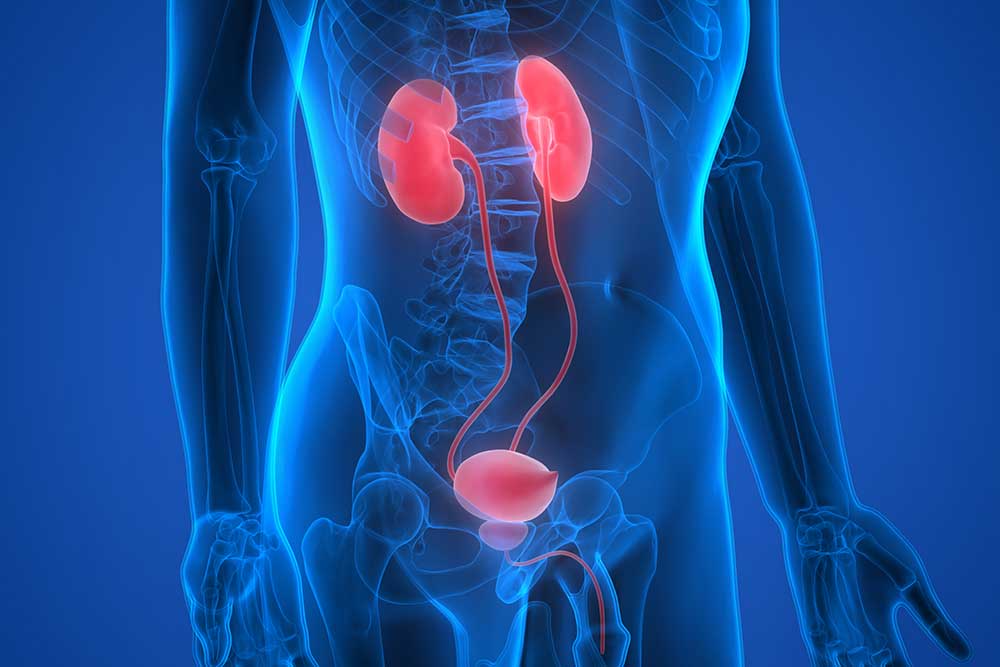- 24 x 7 Helpline : +91 98150 98481 | 98150 98482
- For Appointments : 0183-5251400 to 430 (30 lines)
Urology
- Home
- Urology

Dr. Vikas Rampal
MBBS, MS, MCh. Consultant
Urology is a part of health care that deals with diseases of the male and female urinary tract (kidneys, ureters, bladder and urethra). It also deals with the male organs that are able to make babies (penis, testes, scrotum, prostate, etc.). Since health problems in these body parts can happen to everyone, urologic health is important.
Urology is known as a surgical specialty. Besides surgery, a urologist is a doctor with wisdom of internal medicine, pediatrics, gynecology and other parts of health care. This is because a urologist encounters a wide range of clinical problems. The scope of urology is big and the American Urological Association has named seven subspecialty parts:
- Pediatric Urology (children's urology)
- Urologic Oncology (urologic cancers)
- Renal (kidney) Transplant
- Male Infertility
- Calculi (urinary tract stones)
- Female Urology
- Neurourology (nervous system control of genitourinary organs)
Who takes care of urology patients?
If you have a problem with urologic health you might see a urologist. You might also see a person on the urologist’s care team.
When you visit any healthcare provider, including your urologist, you may notice many non-physicians serving different roles to provide you with quality medical advice and treatment. This group is often referred to as allied health professionals. The trend of integrating these professionals into urologic practices has arisen out of the increasing number of urological patients and the simultaneous limited availability of urologists. These non-physician provider members of the urological healthcare team allow surgeons to focus on more difficult problems and procedures while giving the patient increased personalized attention during their evaluation, diagnostic assessment and management. This article describes the education and training of urological nurses, nurse practitioners and physician assistants.
Urology nursing staff may consist of Licensed Practical Nurses (LPNs), Registered Nurses (RNs) and Advanced Practice Registered Nurses (APNs). LPNs are typically educated in a program that may last from approximately 9 to 24 months. LPNs work closely with RNs, APNs, PAs and urologists, assisting them in delivering care to patients. RNs, who have associate or bachelor degrees, provide professional nursing care to patients and work together with the providers (APNs, PAs and urologists) to help urology patients achieve optimal health.
There are different types of Advanced Practice Registered Nurses — Clinical Nurse Specialist (CNS), Nurse Practitioner (NP), Certified Registered Nurse Anesthetist (CRNA) and Certified Nurse Midwife (CNM). Presently, all APNs have a master’s degree in nursing, and the trend is for many to obtain either a PhD or DNP (Doctorate in Nursing Practice). The two types of APNs working in the field of urology are CNS and NP, both of whom must pass examinations to be board credentialed to practice by a national nursing organization.
The scope of practice for nurses is determined by state law with practice and regulatory differences between NPs and CNSs1. Nurse Practitioners can write prescriptions in all states but the level of autonomy varies from state to state. Clinical Nurse Specialists’ ability to write prescriptions depends on state laws. Nursing organizations across the United States are working to standardize the scope of practice for APNs. Following a recent study, the Institute of Medicine recommended allowing all APNs in the United States to function to their full potential to meet the growing needs of patients2.
Another group of healthcare providers are Physician Assistants, who achieve a bachelor’s degree but many attain a master’s degree. PAs are trained under the “medical model,” with the majority trained by physician MDs. PAs must successfully pass their boards to practice and be re-tested every 6 years to maintain certification. PAs practice in the office and operating room settings, and have prescriptive privileges. The scope of practice for PAs is determined by state law.
Urology APNs and PAs work closely with their urology colleagues, focusing their attention on early intervention for urological problems, disease prevention and educating and counseling patients about their urological conditions. They also focus on promoting wellness informed decision making for patients and their families. Many urological procedures, such as transrectal ultrasound and biopsy of the prostate, penile Doppler ultrasound performance and interpretation, urodynamic study performance and interpretation, and cystoscopy, may be performed by the APN/PA under the direction of the urologist.
